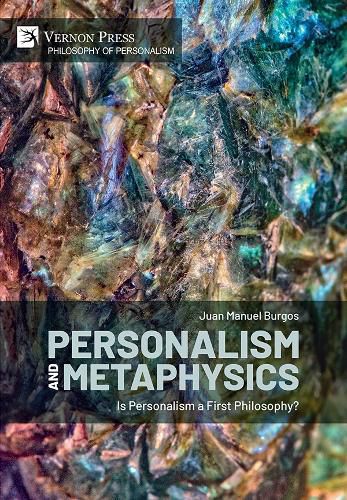Readings Newsletter
Become a Readings Member to make your shopping experience even easier.
Sign in or sign up for free!
You’re not far away from qualifying for FREE standard shipping within Australia
You’ve qualified for FREE standard shipping within Australia
The cart is loading…






This title is printed to order. This book may have been self-published. If so, we cannot guarantee the quality of the content. In the main most books will have gone through the editing process however some may not. We therefore suggest that you be aware of this before ordering this book. If in doubt check either the author or publisher’s details as we are unable to accept any returns unless they are faulty. Please contact us if you have any questions.
Personalism seeks to understand the person in its richness, complexity, and unity, and, to achieve this goal, it has developed a rich and solid anthropology as well as an ethic of the person that is having repercussions in the philosophical and sociopolitical sphere. But what is the value of this philosophy? Does it offer a mere description of the reality of a phenomenological type, or does it penetrate to the bottom of what exists, offering its intelligible essence? Does it offer an ultimate explanation of the person, or is her vision subordinated to a deeper and more decisive one that would correspond to metaphysics?
To answer these questions, the author, an international expert in personalist philosophy, first defines the various meanings in which the term metaphysics can be understood and, secondly, does a comparison between personalism, in particular, integral Personalism, and the metaphysics of being. The analysis concludes that personalism can be considered a first sectoral philosophy, that is, a philosophy that does not need other philosophical referents to establish itself as a philosophy thanks to its direct access to experience, where the person is found.
This conclusion is based on the epistemology of integral experience and imposes a review of the traditional role of metaphysics and its connection with anthropology in general and Personalism in particular.
$9.00 standard shipping within Australia
FREE standard shipping within Australia for orders over $100.00
Express & International shipping calculated at checkout
This title is printed to order. This book may have been self-published. If so, we cannot guarantee the quality of the content. In the main most books will have gone through the editing process however some may not. We therefore suggest that you be aware of this before ordering this book. If in doubt check either the author or publisher’s details as we are unable to accept any returns unless they are faulty. Please contact us if you have any questions.
Personalism seeks to understand the person in its richness, complexity, and unity, and, to achieve this goal, it has developed a rich and solid anthropology as well as an ethic of the person that is having repercussions in the philosophical and sociopolitical sphere. But what is the value of this philosophy? Does it offer a mere description of the reality of a phenomenological type, or does it penetrate to the bottom of what exists, offering its intelligible essence? Does it offer an ultimate explanation of the person, or is her vision subordinated to a deeper and more decisive one that would correspond to metaphysics?
To answer these questions, the author, an international expert in personalist philosophy, first defines the various meanings in which the term metaphysics can be understood and, secondly, does a comparison between personalism, in particular, integral Personalism, and the metaphysics of being. The analysis concludes that personalism can be considered a first sectoral philosophy, that is, a philosophy that does not need other philosophical referents to establish itself as a philosophy thanks to its direct access to experience, where the person is found.
This conclusion is based on the epistemology of integral experience and imposes a review of the traditional role of metaphysics and its connection with anthropology in general and Personalism in particular.